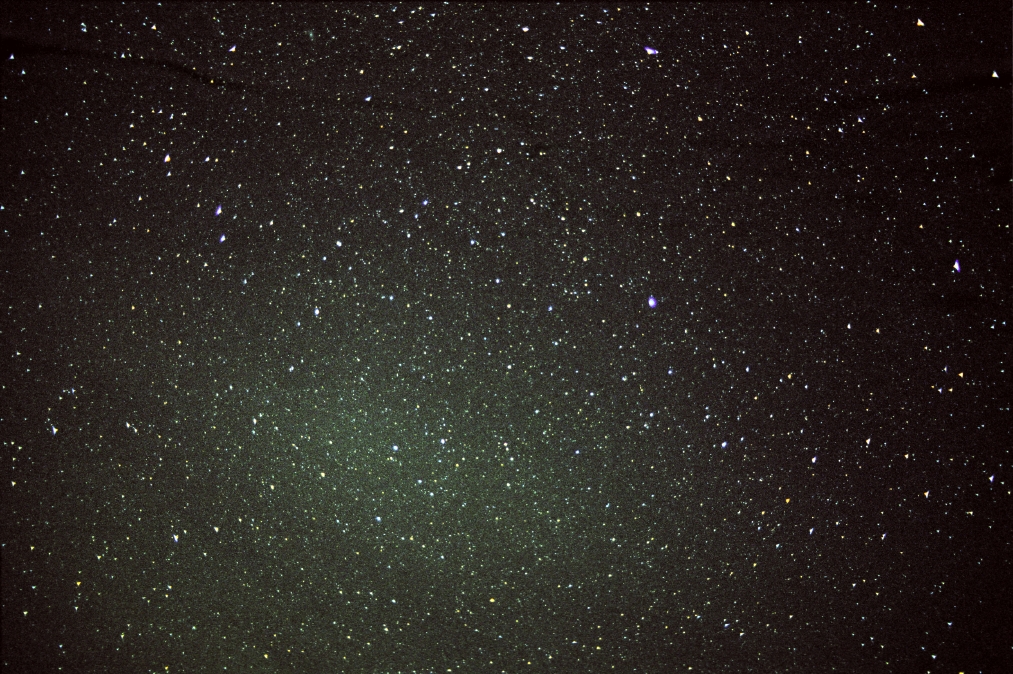Sir Arthur Streeb-Greebling writes:
As the evil monkey is to Chris, or the chicken is to Peter, so Creationism is to me. I hate it, and find myself standing at the top of the stairs pointing out its obese failings and launching into a hearty attack should it get too close.
I hate Creationism for its abysmal understanding of biology and D-Grade philosophy. I hate creationists for the above, and for their slimy lying deceitful ignorance, their deliberate misrepresentation of other people's work and lack of anything remotely scientific in their own.
This may be all very well. But the thing is, my previous post was an exhortation to all to apply the "Principle of Charity" to our opponents, and here I am facing a belief that deserves nothing but derision. I am sorely tested, but must lead by example nonetheless.
The latest affront comes from Mr Cresswell's Blog, where he gave one Berend de Boer free reign in return for a beer. O tempora, O mores. The old hoary chestnut of transitional fossils and the fossil evidence for evolution was the order of the day, and Peter gave Mr de Boer space to "pile up the quotes from evolutionists having serious doubt about that fossil evidence?"
I should note that Berend does not explicitly state that he is a creationist, although he does list it as one of his interests (alongside the Bible), and so it would be premature, though not in my presumption inaccurate, to tar him with that brush, and to be fair, he has stated elsewhere that he is unsure about ID being scientific - not that this would make any difference since all creationists ever do is moan about evolution, and moaning about evolution is all Berend has done whether creationist or not.
So, let's see if we can add some formal structure to Berend's argument.
1) Evolution is divided into micro-evolution and macro-evolution.
1a) Micro-evolution is the rearrangement of existing genetic material.
1b) Macro-evolution is the appearance of new genetic material.
C1) If Macro-evolution has occurred then the fossil record would show examples of 1b.
2) The following list of quotes come from believers in evolution.
2a) They state that the fossil record does not show 1b.
2b) They are qualified to make that assessment, and the quotes are scientifically recent.
2c) They have been quoted accurately.
2d) If (2a), (2b), and (2c), were true then we can reasonably assume that the fossil record does not support macro-evolution.
2e) 2d is true.
----------
(C) - The fossil evidence does not support evolution.
Let's start at the beginning. Berend's definition of evolution:
Micro-evolution is natural selection, i.e. Darwin's Finches, but also breeding dogs and horses. It is a rearrangement of existing genetic material. No one is arguing that this is real and is happening.
"[M]acro-evolution...is the appearance of new genetic material, new functionality that didn't exist before."
I have said before that I have never met anyone who did not both understand evolution and mange to refute it (a quote borrowed from Lenny Flank and that certainly is the case with Berend de Boer. Measuring his definition against reality, we find out that Microevolution is the occurrence of small-scale changes in allele frequencies in a population, over a few generations, also known as change at or below the species level.
Which, of course, means that Macroevolution, if it is even a valid concept, is change above the species level. If it is even a valid concept, mind. But we won't get distracted down that path, the point is that Berend is wrong, and that is premises 1, 1a, and 1b taken care of.
So, Berend has his definitions wrong at the offset, not a good start. Incidentally, speciation, and thus macroevolution, have been observed heaps. Now to our sort of halfway conclusion C1. Let's recap where we are up to
1) Evolution is divided into micro-evolution and macro-evolution.
1a) Micro-evolution is the rearrangement of existing genetic material.
1b) Macro-evolution is the appearance of new genetic material.
C1) If Macro-evolution has occured then the fossil record would show examples of 1b.
C1 is fairly innoccuous. Whatever sort of evolution has occured it would not be unreasonable to expect that if there was a fossil record it would show examples of it. As species evolved, and fossilised, we would expect to find transitional and intermediate fossil examples of them. It might pay to amend it slightly in the light of 1b being rendered meaningless to:
C1a) If evolution has occured we would expect to find transitional fossils in the fossil record.
This might also involve getting rid of premises 1, 1a, and 1b completely, but I'm not going to go overboard examining all the possible permutations. The point is that (once again) whatever happened in evolutionary history we should find examples of it in the fossil record.
Now on to the second half of Berend's argument.
2) The following list of quotes come from beleivers in evolution.
2a) They state that the fossil record does not show 1b.
2b) They are qualified to make that assesment, and the quotes are scientifically recent.
2c) They have been quoted accurately.
2d) If (2a), (2b), and (2c), were true then we can reasonably assume that the fossil rcord does not support macro-evolution.
2e) 2d is true.
----------
(C) - The fossil evidence does not support evolution.
Now then, I am not going to go through every single quote and apply all those criteria to them. We would be here forever. Instead, I will cull them so the strongest (for Berend's argument) quotes are left. If the strongest quotes fail then we would reasonably expect the weaker ones to fail as well.
The most important criteria is recency, part of 2b. Science is an incredibly fluid discipline with many new discoveries being made all the time. If you take science papers at university you would be bloody lucky to get assigned a textbook that had not been revised within the past five years. But we are going to be exceedingly generous and give Berend a twenty year window. If Berend's quotes are more than twenty years old, we can ignore them, they are obsolete.
We ignore quotes of Charles Darwin, of G. G. Simpson in 1959, Norman Newell, Stephen Jay Gould from 1977, Colin Patterson from 1979, S Stanley from 1979, and David Pilbeam. The Richard Dawkins quote is unreferenced.
So, we are left with:
1) A quote from Stephen Jay Gould from his 2002 book "The Structure of Evolutionary Theory"
2) A Colin Patterson quote from 1988.
3) A Mark Ridley quote from 2004.
I'm also going to cull the Michael Denton and Luther Sunderland bits. Because of premise 2., and in Sunderland's case because of the first half of 2b.
We're down to three quotes. Let's start with Colin Patterson. In Berend's words:
"Dr Colin Patterson, a senior palaeontologist at the British Museum of Natural History and author of the book Evolution said (quoted in Darwin's Enigma, Luther Sunderland, 1988):
Yet Gould and the American Museum people are hard to contradict when they say there are no transitional fossils. As a palaeontologist myself, I am much occupied with the philosophical problems of identifying ancestral forms in the fossil record. You say that I should at least "show a photo of the fossil from which each type of organism was derived."? I will lay it on the line-
there is not one such fossil for which one could make a watertight argument. The reason is that statements about ancestry and descent are not applicable in the fossil record."
1988 is (just recent enough to be included, but has Patterson been quoted accurately?
No.
And we are down to two. Messrs Gould and Ridley.
Let's start with Gould. According to Berend:
"In his last book, the
Structure of Evolutionary Theory, Stephen J. Gould wrote:
... since we have no direct data for key transitions that occurred so long ago and left no fossil evidence ... such entirely speculative scenarios must be understood within their acknowledged
limits -- that i as hypothetical stories, "cartoons" in Buss's words, invented to illuminate a potential mode and not as claims about any historical accuracy.
Stephen J. Gould also quotes George Gaylord Simpson:
... the greatest and most biologically astute paleontologist of the 20th century ... acknowledged the literal appearance of stasis and geologically abrupt origin as the outstanding general fact of the fossil record and as a pattern which would "pose on of the most important theoretical problems in the whole history of life.""
For those who don't know, "The Structure of Evolutionary Theory" is more than 1,400 pages long. Berend has helpfully left out that page numbers of his quotes. But we can dismiss those quotes for two reasons.
Firstly, when people quote Gould as doubting evolution in any way, they are
distorting him.
Secondly, Gould recognises this tactic, and does
not approve of it. He does believe there are transitional fossils, as quoted accurately from the above link.
"transitions are often found in the fossil record. Preserved transitions are not common—and should not be, according to our understanding of evolution (see next section) but they are not entirely wanting, as creationists often claim."
Given those two facts, I would bet that Berend has taken Gould out of context and has distorted Gould's message.
Which leaves us with Mark Ridley. Berend again:
"In
Evolution by Mark Ridley, published in 2004, we learn why there has never been a Nobel Prize awarded for evolutionary theory. He states:
We need to keep in mind the status of the evolutionary biologist's argument here. The series of stages may in some cases not be particularly plausible, or well supported by evidence, but the argument is put forward solely to refute the suggestion that we cannot imagine how the character could have evolved. (p. 263)
He continues and concludes his argument in the following paragraph:
It is fair to conclude that there are no known adaptations that definitely could not have evolved by natural selection. Or (if the double negative is confusing), we can conclude that all known adaptations are in principle explicable by natural selection. (p. 263)"
To be honest I can't see how this strengthens Berend's case at all. Mark Ridley firstly (presumably, since I don't have Ridley's book, and given Berend's form I have very, very little certainty that he has been quoted fully and accurately) says that there are
some cases where evidence is lacking and that scientists put forward scenarios to explain how they could have evolved - which is their job as scientists, to try and find answers and put forward hypotheses, and so on. But Ridley doesn't doubt evolution or the fossil record at all. As he said
"we can conclude that all known adaptations are in principle explicable by natural selection."
And that's pretty much that. After culling out a good many obsolete quotes we were left with two distortions and one guy who says that "we can conclude that all known adaptations are in principle explicable by natural selection." Hardly the death knell for Darwin, is it.
The final word on fossils and evolution goes to Richard Dawkins from his most recent book
"In spite of the fascination of fossils, it is surprising how much we would still know about our evolutionary past without them. If every fossil were magicked away, the comparative study of modern organisms, of how their patterns of resemblences, especially of their genetic sequences are distributed among species, and of how species are distributed among continents and islands, would still demonstrate, beyond all sane doubt, that our history is evolutionary, and that all living creatures are cousins. Fossils are a bonus. A welcome bonus, to be sure, but not an essential one. It is worth remembering this when creationists go on (as they tediously do) about 'gaps' in the fossil rcord. The fossil record could be one big gap, and the evidence for evolution would still be overwhelming. At the same time, if we only had fossils, and no other evidence, the fact of evolution would again be overwhelmingly supported. As things stand we are blessed with both."
The Ancestor's Tale, p13.







